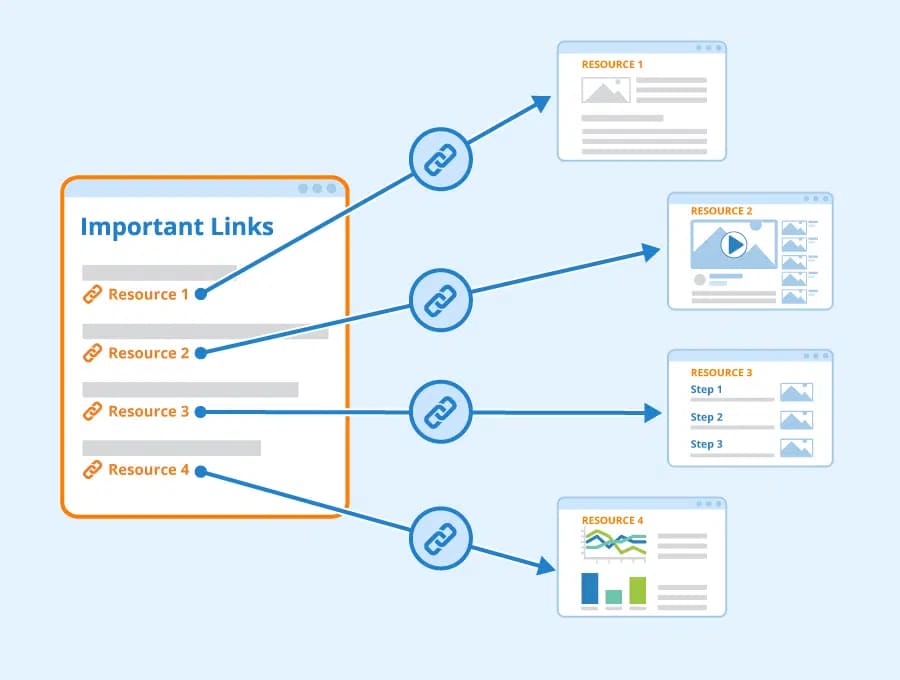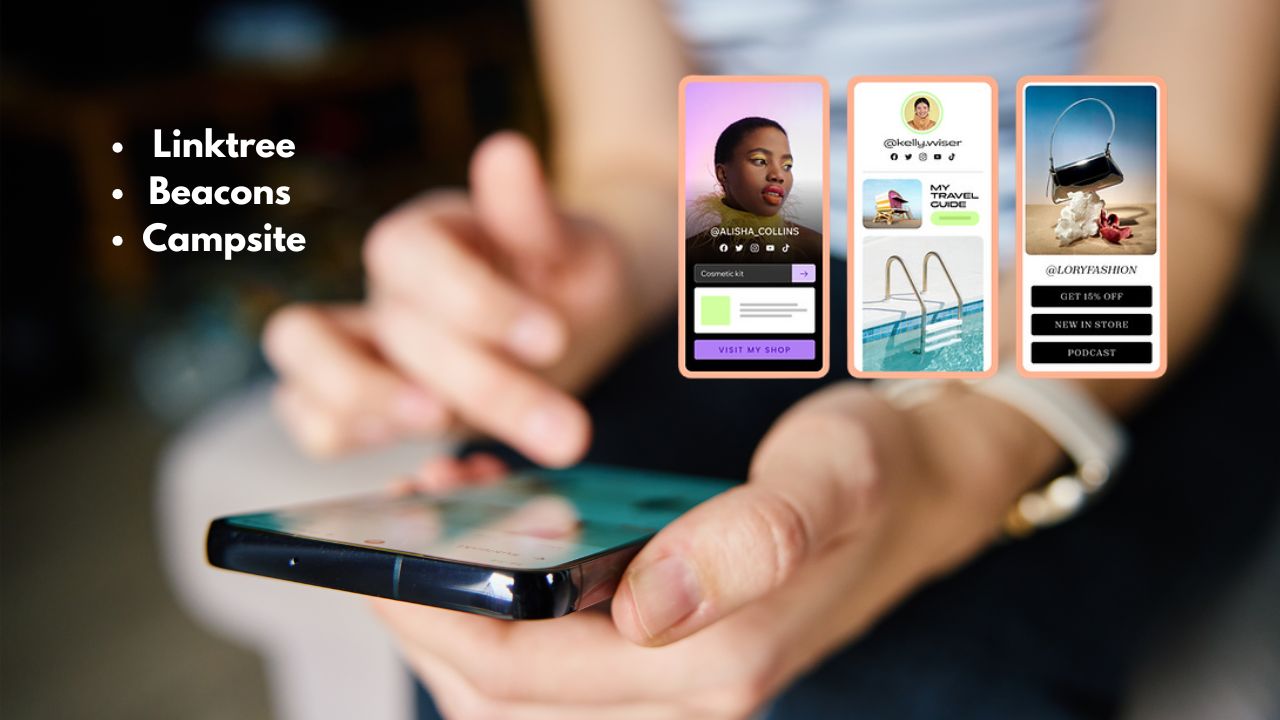In the digital era, having an online presence is a must for any business. But does that mean every business needs a full-fledged website? Some entrepreneurs and small businesses rely entirely on social media and link-in-bio platforms like Linktree, Beacons, or Campsite, believing that a dedicated website isn’t necessary.
For businesses that primarily operate through Instagram, TikTok, or Facebook, a link-in-bio page offers a quick and easy way to share important links in one place. It allows customers to access an online store, booking system, or contact details without the need for a traditional website. However, is that truly enough to build a long-term, scalable, and credible business?
This article explores why some businesses choose not to have a website, how link-in-bio platforms work, the limitations of relying solely on them, and why a website remains the best long-term strategy for growth and credibility.
- Why Some Businesses Choose Not to Have a Website
- What Do Link-in-Bio Pages Like Linktree, Beacons, and Campsite Offer?
- The Limitations of Only Using Link-in-Bio for Business Growth
- SEO Disadvantages: Why Search Engines Prefer Real Websites
- Conclusion: When a Website is Necessary and When a Link-in-Bio is Enough
Why Some Businesses Choose Not to Have a Website

There are various reasons why businesses decide against investing in a website. Some believe that social media alone is enough to reach customers and generate sales. Businesses that rely heavily on platforms like Instagram, TikTok, and Facebook often assume that having a strong presence on these networks eliminates the need for a website. Features like Instagram Shopping, Facebook Marketplace, and direct messaging provide a seamless way to interact with customers and sell products.
Other businesses choose link-in-bio tools because they provide a quick and free online presence. Platforms like Linktree, Beacons, and Campsite make it easy to create a simple landing page with multiple links, which is useful for directing customers to an e-commerce store, a booking page, or a contact form. For freelancers and new entrepreneurs who don’t have the time or budget to build a website, these tools seem like an easy solution.
Cost is another major factor. Setting up and maintaining a website requires an initial investment in domain registration, hosting, and design. Some small businesses prefer to start with free or low-cost alternatives before committing to a website. For these businesses, a link-in-bio page serves as a temporary solution until they are ready to expand.
While these reasons are understandable, the real question remains: Is a link-in-bio page enough for business growth, or does it come with serious limitations?
What Do Link-in-Bio Pages Like Linktree, Beacons, and Campsite Offer?
Link-in-bio platforms were created to help businesses and content creators organize their important links in one place. These tools are especially popular among influencers, freelancers, and small business owners who need a simple way to direct traffic to multiple destinations.
Linktree is one of the most well-known link-in-bio tools. It provides a minimalist one-page menu where users can list their most important links, such as their website, online store, and social media pages. The platform offers basic customization options, such as brand colors and link tracking.
Beacons takes it a step further by adding email capture forms, tipping features, and mini e-commerce tools, making it more appealing to content creators and personal brands who want to monetize their audience. Campsite offers greater design flexibility, allowing businesses to create a more branded link-in-bio page compared to Linktree.
These platforms help businesses stay organized, but are they enough to replace a website?
The Limitations of Only Using Link-in-Bio for Business Growth
While a link-in-bio page provides a simple way to share multiple links, it has significant limitations that can hurt business credibility, discoverability, and long-term growth.
One of the biggest issues is branding limitations. A business that relies only on a link-in-bio page lacks a strong brand identity because most link-in-bio tools follow the same basic design structure. Customers who visit a Linktree page won’t see a unique business identity. In contrast, a custom website allows businesses to fully customize their branding, from logos and colors to fonts and overall user experience.
Another major drawback is SEO limitations. Businesses that rely solely on social media and link-in-bio tools miss out on valuable organic search traffic. Websites can rank on Google and attract potential customers through SEO-optimized content, whereas link-in-bio pages don’t get indexed properly in search engines. This means that if someone searches for a business’s services, they are less likely to find them without a website.
Dependence on third-party platforms is another risk. Businesses that rely only on Instagram, TikTok, or Linktree are vulnerable to algorithm changes, policy updates, and platform shutdowns. If an account is suspended or a social media platform limits organic reach, the business could lose access to its customer base overnight. With a website, businesses own their digital presence and have complete control over their branding, marketing, and customer interactions.
Credibility is also a concern. Many consumers expect legitimate businesses to have a professional website. Without one, a business might appear less trustworthy or established. A website provides trust signals such as customer testimonials, an “About Us” page, and secure payment options, all of which contribute to customer confidence.
SEO Disadvantages: Why Search Engines Prefer Real Websites

Search engines like Google prioritize websites that provide valuable, original content. A business that only relies on a link-in-bio page is missing out on the opportunity to rank for important industry keywords.
Websites can be optimized for search engines through blogs, landing pages, and product descriptions, which help attract potential customers organically. Link-in-bio pages lack these features, making them almost invisible to search engines. This means businesses relying only on link-in-bio tools miss out on free traffic from Google searches and are forced to depend entirely on social media for visibility.
For businesses looking to grow beyond social media, investing in a website is essential.
Conclusion: When a Website is Necessary and When a Link-in-Bio is Enough
A link-in-bio page can be a useful tool for businesses that are just starting out or rely primarily on social media for sales. It offers a simple way to organize links and create a minimal online presence. Businesses that are still in the early stages, testing the market, or operating as a side hustle may find that a link-in-bio page is enough—for now.
However, for businesses that want to build credibility, attract customers through SEO, and scale their operations, a website is essential. A well-designed website enhances branding, improves discoverability, and gives full control over customer interactions. It also ensures that the business is not dependent on social media algorithms or third-party platforms.
At Noethera, we help businesses create professional, high-converting websites that provide the flexibility and scalability needed for long-term growth. 💡 Want to build a website that actually helps your business grow? Contact Noethera today and let’s create a website that works for you!







